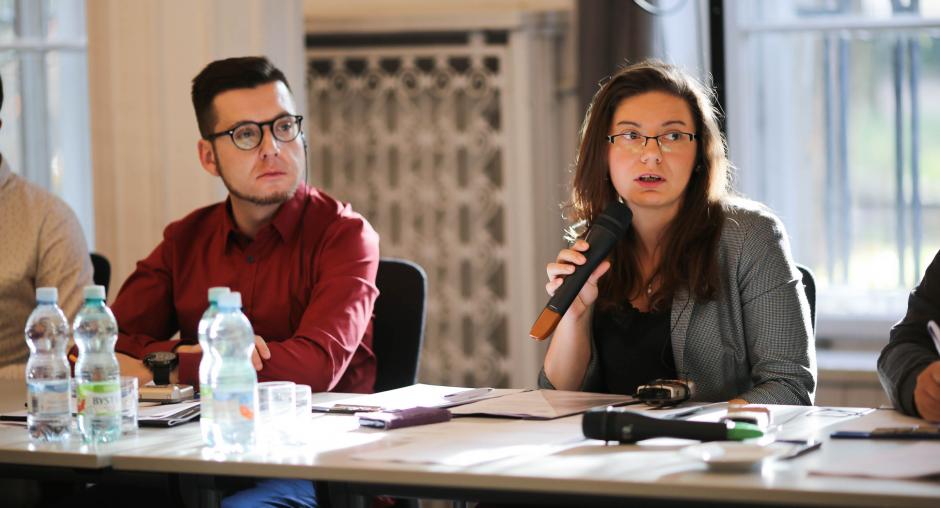Polish torture prevention monitors trained by ODIHR and partners in monitoring and documenting use of weapons and restraints

Enhancing the independent monitoring and documenting of the use of weapons and restraints in law enforcement activities was the focus of a capacity-building event for Polish torture prevention monitors on 30 October 2018 in Warsaw. The event was organized by the OSCE Office for Democratic Institutions and Human Rights (ODIHR), the Omega Research Foundation and the University of Exeter and supported by the Economic and Social Research Council of the United Kingdom.
Twelve members (seven men and five women) of the Polish National Preventive Mechanism (NPM) participated in the training event, designed to match the mandate of an NPM. They discussed challenges in monitoring the use of restraints and electric shock weapons, with a specific focus on Tasers, laws and regulations applicable to certain categories of weapons, and the use of force by law enforcement officials. The participants explored the related medical and human rights risks and various methods of documentation.
“This training is part of ODIHR’s continuous work on preventing torture and strengthening the independent monitoring of places of detention in the OSCE region,” said Stephanie Selg, ODIHR Adviser on Torture Prevention. “We hope that we will be able to continue to train monitors not only in Poland but across the region.”
Przemysław Kazimirski, Head of the National Preventive Mechanism of Poland, said: “Monitoring weapons and other equipment used by law enforcement officials with a view to issuing recommendations on how to better prevent torture or other ill-treatment is a crucial part of our mandate. Until very recently there was little guidance for monitors, and this training provided an excellent opportunity for us to learn more about available tools, as well as enhancing our monitoring skills in this area.”
Abi Dymond, Lecturer in Criminology at the University of Exeter, said: “It is crucial that torture prevention bodies are able to effectively document the presence, use and misuse of weapons and restraints, including those weapons sometimes referred to as 'less lethal’. This can help to ensure accountability and prevent future misuse and abuse of such weapons.”
The training builds on the Guidance Document on the Nelson Mandela Rules, a joint publication by ODIHR and Penal Reform International (PRI).
